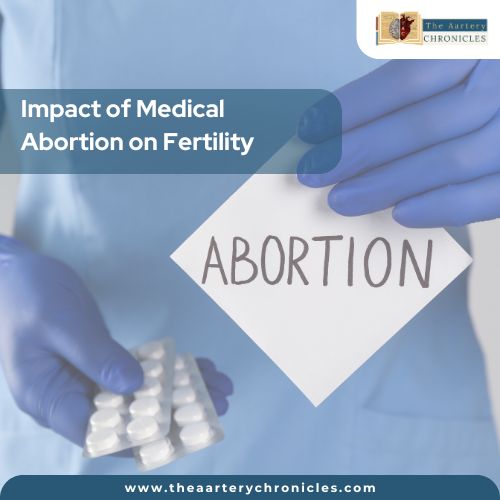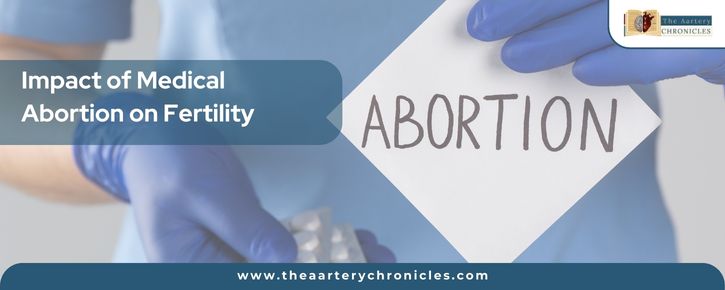

Exploring the Impact of Medical Abortion on Future Fertility
In medical terminology, the term “abortion” refers to the termination of a pregnancy, regardless of whether it occurs spontaneously (miscarriage) or is induced deliberately by medication or surgery. Nevertheless, in general discourse, “abortion” typically refers to an intentional termination of pregnancy, which is the context this article adopts. [1]
If you’ve undergone an induced abortion, you might worry about its implications for future fertility and pregnancies. This article will delve into various forms of abortion, their impact on future fertility, and factors to look out for if experiencing challenges conceiving following an abortion.
Understanding Medical Abortion
Generally, the selection of an abortion procedure is contingent upon the stage of pregnancy. Additionally, timing may also dictate whether a medical or surgical abortion is required.
Abortion can be categorized into two main types: medical and surgical.
Medical Abortion
A medical abortion, also known as a medication abortion, is a non-surgical method of terminating a pregnancy in the early stages using prescription pills. It typically involves the use of the medicines mifepristone and misoprostol to induce miscarriage-like symptoms and terminate the pregnancy.
The Federal Drug Administration (FDA) has authorized the utilization of mifepristone and misoprostol for medical abortion, deeming them safe and effective for pregnancies of up to 10 weeks. [2]
Surgical Abortion
A surgical abortion is a medical procedure performed to terminate a pregnancy or to remove any remaining pregnancy tissue from the uterus using surgical techniques. Various surgical abortion techniques, such as aspiration (commonly known as suction or vacuum aspiration) and dilation and evacuation (D&E), are employed to surgically remove the fetus and placenta. [3]
The gestational age limit for surgical abortion can vary depending on regional laws, healthcare provider policies, and individual circumstances.
The gestational age limit for surgical abortion in India
Abortion has been legal since 1971 and in India, the Medical Termination of Pregnancy (MTP) Act, 1971, governs the termination of pregnancies. The MTP Act allows for abortion up to 20 weeks of gestation. Abortions beyond the 20-week limit, extending up to 24 weeks, may be permitted under special circumstances with the approval of a medical board. [4]
What are the potential risks and side effects of abortion?
Abortion, like any medical procedure, carries potential risks and complications. Some of the physical risks associated with abortion include:
- Incomplete abortion: In some cases, medical abortion may not completely expel all pregnancy-related tissue from the uterus, leading to an incomplete abortion. This may require additional medical intervention, such as a surgical procedure, to complete the abortion.
- Haemorrhage: Heavy bleeding, although uncommon, can occur after taking the medication. This may sometimes require medical attention or intervention to control the bleeding.
- Infection: There is a heightened risk of uterine infection during post-abortion bleeding, as is common with any abortion procedure. It is recommended to refrain from using tampons, engaging in sexual intercourse, taking baths, swimming, or visiting saunas to reduce this risk.
- Uterine and internal organ damage: Surgical abortion procedures carry the risk of uterine injury, potentially leading to complications like uterine perforation. Additionally, there is a risk of injury to the reproductive tract and internal organs from the insertion of hazardous objects into the vagina or anus. [5]
How does abortion impact future fertility and pregnancy outcomes?
A safe and legal abortion, without complications, does not impact a woman’s future ability to conceive children.
Several research studies and The American College of Obstetricians and Gynaecologists (ACOG) have confirmed that having an abortion typically does not affect fertility or pregnancy outcomes in the future unless there are significant complications due to the abortion, like cervical damage.
Once the pregnancy is terminated, the body generally returns to its pre-pregnancy state relatively quickly. Research indicates that fertility usually resumes within a few weeks to months after a medical abortion. Doctors often advise using contraception promptly after an abortion to prevent a potential pregnancy during ovulation. Additionally, it is common for doctors to suggest abstaining from sexual intercourse for a specified period following an abortion to facilitate healing. [6, 7]
Dispelling some common myths and misconceptions about abortions
Many individuals may harbor concerns about the potential impact of a past abortion on their future fertility and the risk of miscarriage. Some of these concerns may stem from misinformation and misconceptions associating abortion with difficulties conceiving again.
Despite common misconceptions, abortion does not:
- Raise the likelihood of miscarriage.
- Increase the risk of ectopic or tubal pregnancy (when a fertilized egg implants and grows outside the uterus, usually within one of the fallopian tubes).
- Raise the risk of birth defects, preterm (premature) birth, or low birth weight in future pregnancies. [8]
What are the risk factors for infertility?
If you are having difficulty conceiving after an abortion, it is essential to explore other potential factors that could impact fertility, as a past abortion is unlikely to be the sole reason for challenges in conception. The other factors that may also contribute to fertility issues are as follows:
During the primary infection stage, the immune system detects and captures the TB bacteria. While some bacteria may be eliminated, others may survive and multiply.
- Age: Fertility declines with age, especially for women after their mid-30s and for men after their 40s.
- Health conditions: Certain medical conditions, such as polycystic ovary syndrome (PCOS), endometriosis, sexually transmitted infections (STIs), and autoimmune disorders, can affect fertility in both men and women.
- Lifestyle factors: Factors such as smoking, excessive alcohol consumption, drug use, obesity, a poor diet, and a lack of exercise can negatively impact fertility.
- Weight: Both underweight and overweight individuals may experience fertility issues, as weight extremes can disrupt hormonal balance and ovulation.
- Physiological factors: factors such as irregular ovulation, blocked fallopian tubes, and uterine abnormalities can impact fertility. [9]
Conclusion
In conclusion, medical abortion is a safe and effective option for terminating early pregnancies with minimal impact on fertility. It is essential for women to make informed decisions about their reproductive health, weighing the benefits and risks of various abortion methods. Seeking guidance from healthcare providers and accessing reliable information can empower individuals to navigate reproductive choices confidently. Remember, every woman’s situation is unique, and personalised medical advice is crucial for making informed decisions regarding abortion and fertility.
- Abortion - Public Health - Oxford Bibliographies
- Medical Abortion: What It Is, Pain, Risks & Recovery (clevelandclinic.org)
- Surgical abortion | The Royal Women's Hospital (thewomens.org.au)
- Abortion Laws in India - ClearIAS
- Abortion (who.int)
- Medication Abortion Up to 70 Days of Gestation | ACOG
- Abortion Care | ACOG
- Does having an abortion affect your ability to have children in the future? (plannedparenthood.org)
- Female Infertility: Causes, Symptoms, Diagnosis & Treatment (clevelandclinic.org)

Author: Dr. Anjali Singh
- Medicine and Diseases
- Nutrition and Diet
















